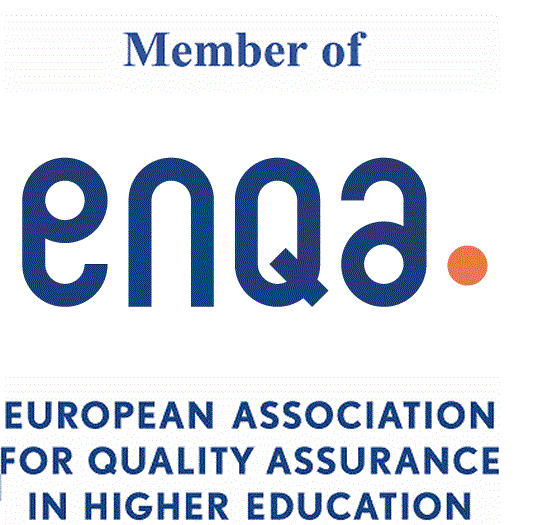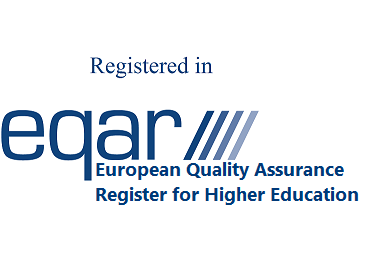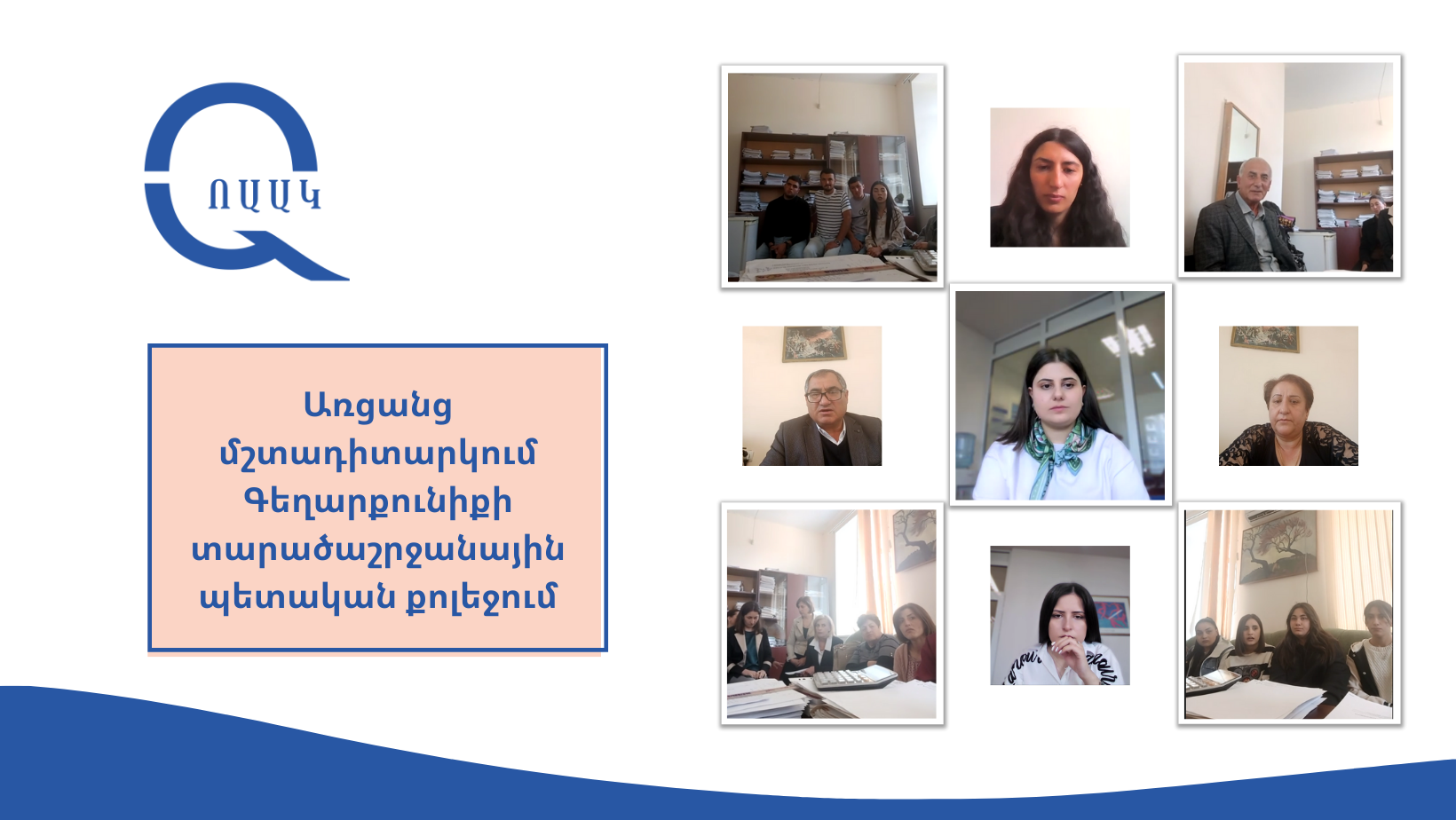On May 19, ANQA’s specialists conducted an online monitoring of the internal quality assurance system at the Gegharkunik Regional State College. In 2024, the education institution was granted conditional institutional accreditation for a period of two years.
The aim was to identify the impact of accreditation on the quality assurance system and education process, track the implementation of the follow-up plan, as well as observe the achievements and possible challenges.
As part of the monitoring, meetings were held with the education institution’s management staff, teachers, students and quality assurance manager.
The following topics were addressed:
- Academic programme (AP) enhancemnt
The discussions covered the AP review process, with an emphasis on any changes made, cooperation with employers and the data to inform these changes. - Student-centeredness
A reference was made to the education institution’s understanding of student-centered education, highlighting the ways student needs are identified and the mechanisms in place to address them. - Capacity building of the teaching staff
The discussions explored how the education institution attracts employer teachers, identifies their professional and methodological needs, organises relevant training, evaluates training effectiveness and coordinates these processes. - Quality assurance processes
An emphasis was placed on the education institution’s quality assurance activities and tools, including the implementation of the PDCA cycle, annual quality assurance plans with defined priorities and data-driven decision-making approaches. - Assessment system
The discussions covered changes to the student assessment system, focusing on whether criteria are clearly defined, how internships are assessed, the provision of teacher feedback and the role of formative assessment in student progress. - Research development
Student assignments designed to develop research skills were identified, along with the extent of their relevance to the employer's context and their impact on students' professional growth.
- Career growth of alumni
The focus was on the alumni’s employment indicators, specifically the percentage entering the labour market and those pursuing further studies at HEIs. - KPIs
The discussions highlighted the education institution’s KPIs, which are used to evaluate the effectiveness of its activities.
At the end of the monitoring, ANQA’s specialists met with the education institution’s management staff to summarise the monitoring outcomes and introduce areas for enhancement. Recognising positive steps in research development, ANQA stressed that research activities in academic programmes should be strategically planned to align with specific timelines and thematic frameworks. It was empasised that the divisions’ activity planning should arise from the strategic plan. An importance was attached to the establishment of clearly defined KPIs that represent the minimum targets the education institution should aim for and apply as a basis for evaluating the outcomes and effectiveness of its activities. It was proposed that specific areas be identified for data collection as part of the quality assurance system to support sound decision-making.



